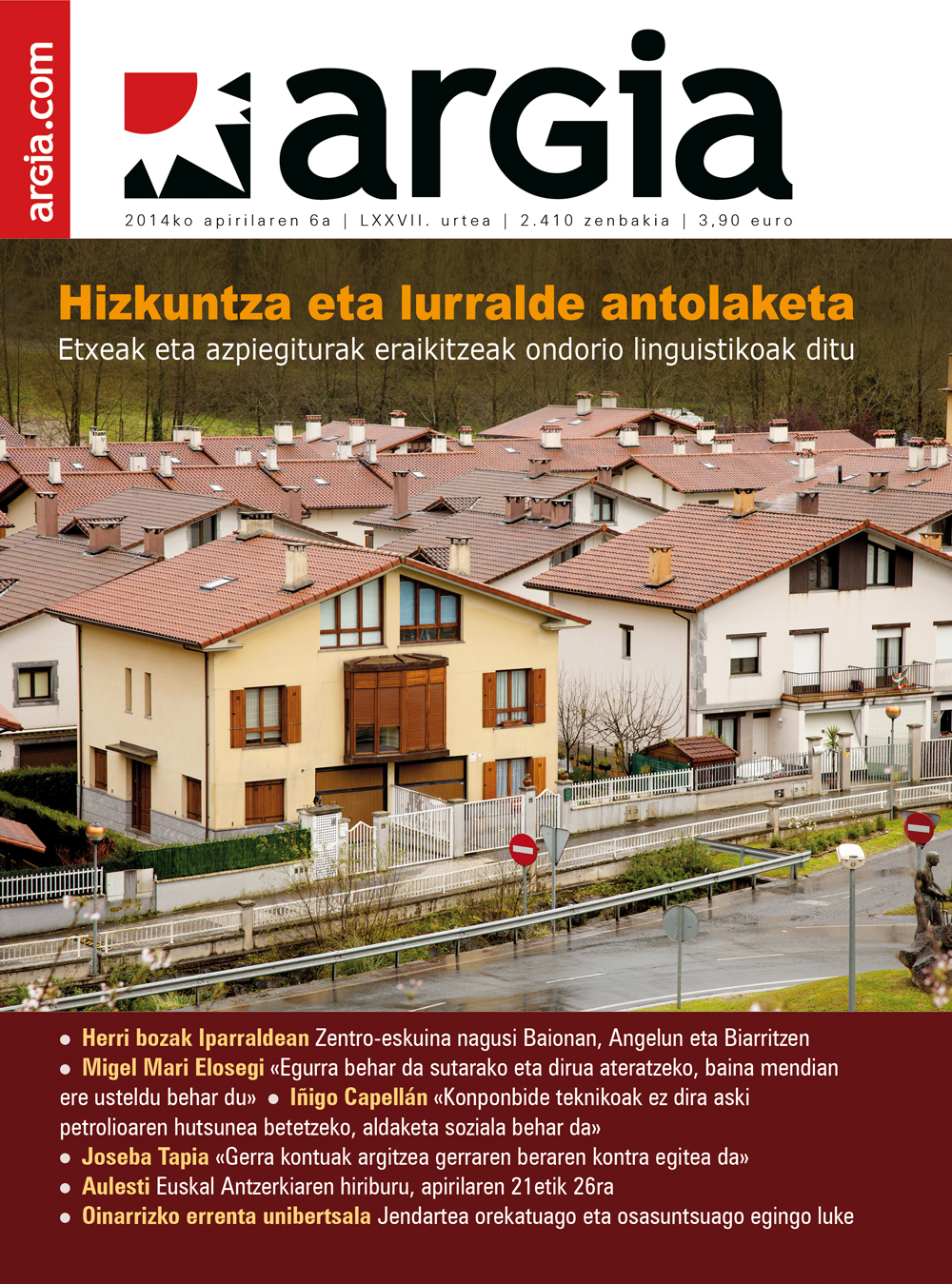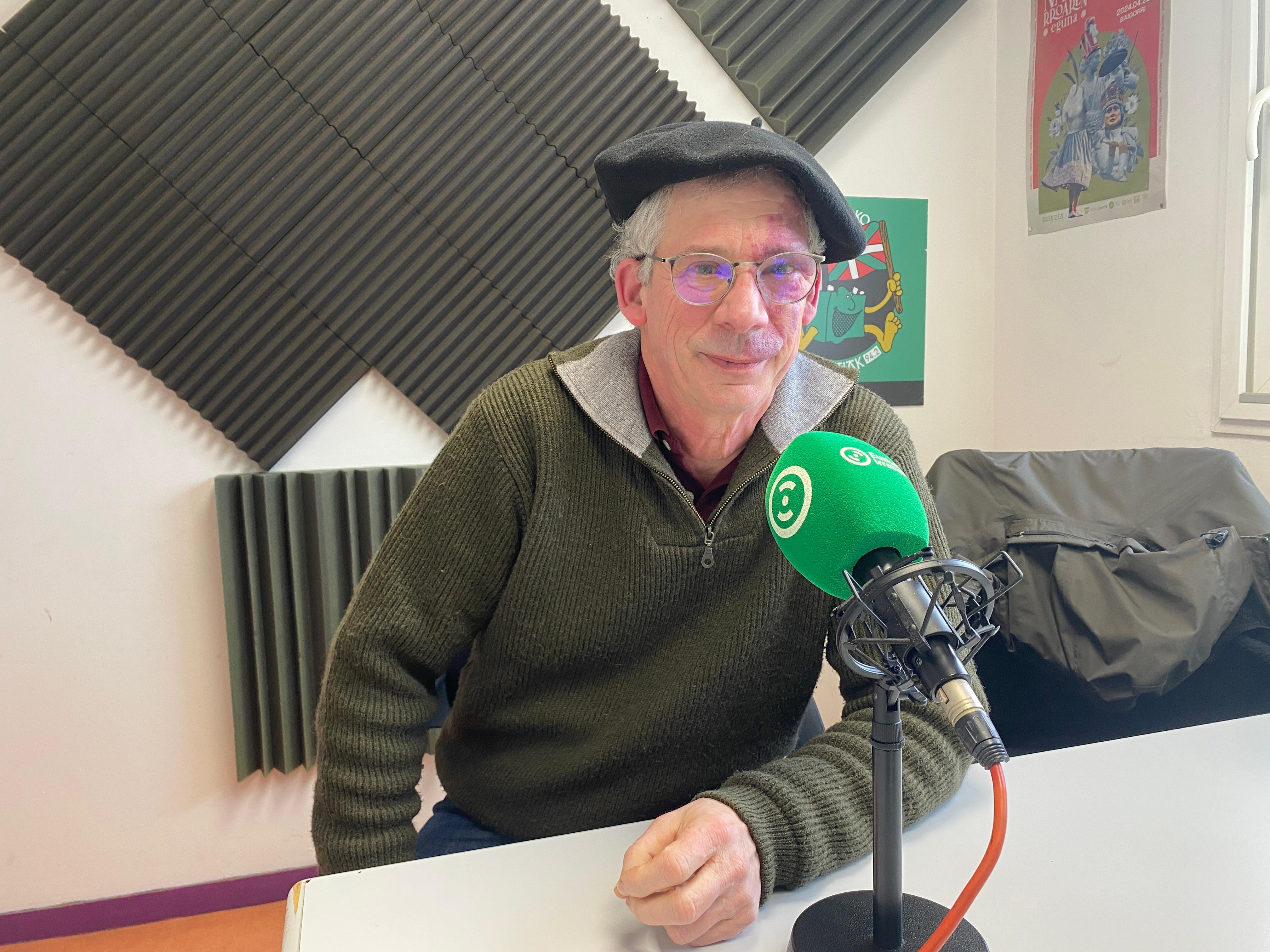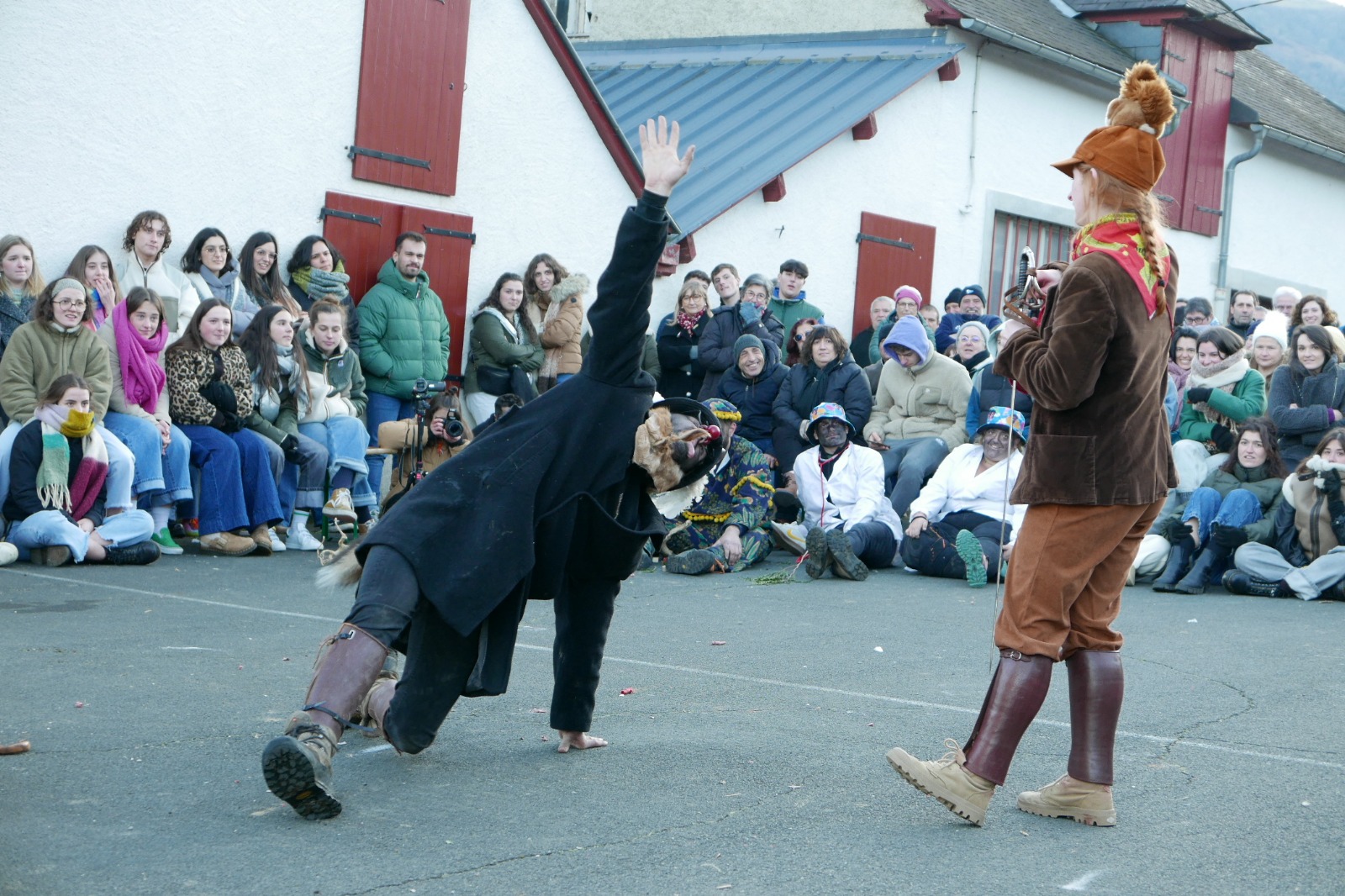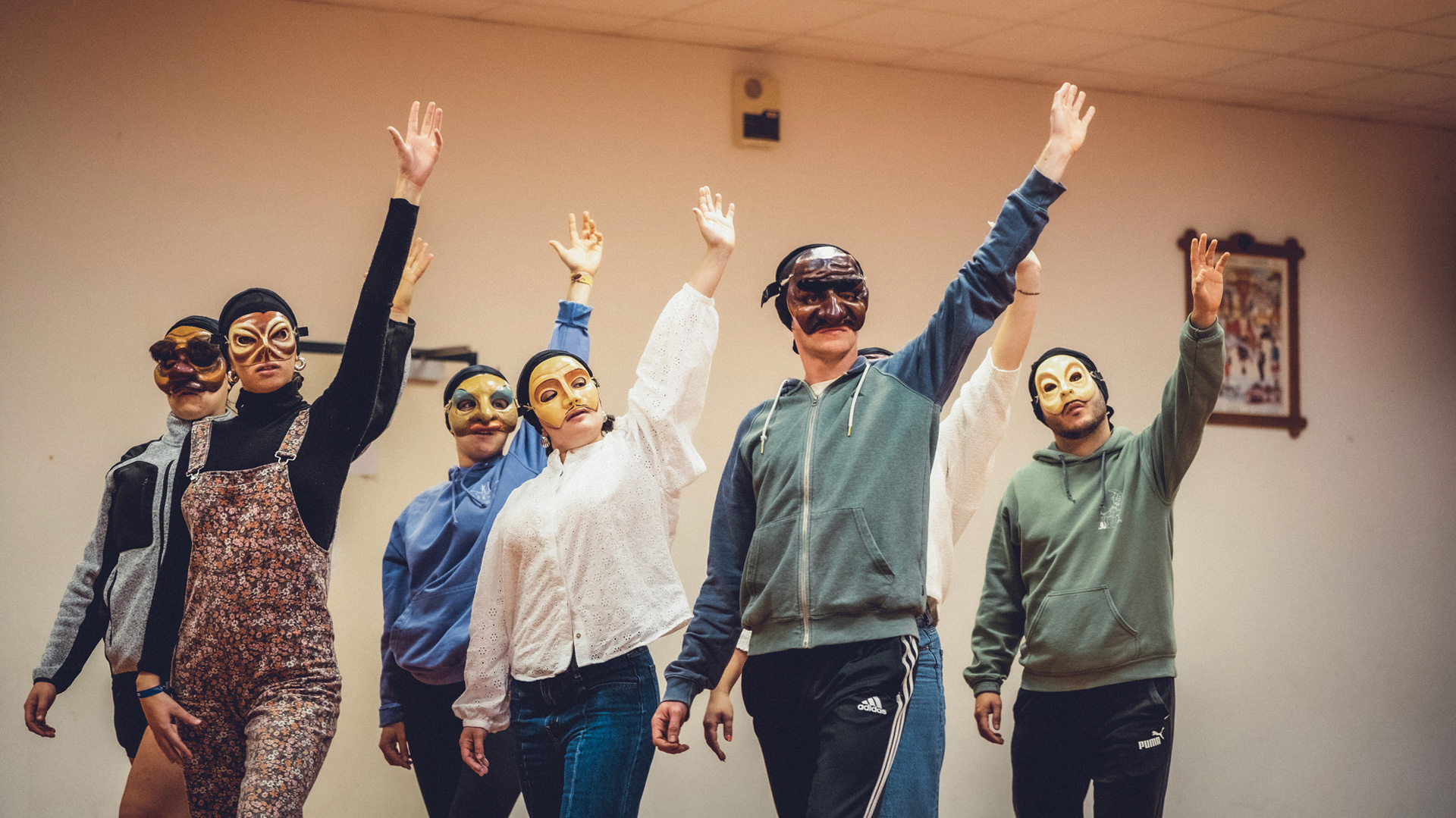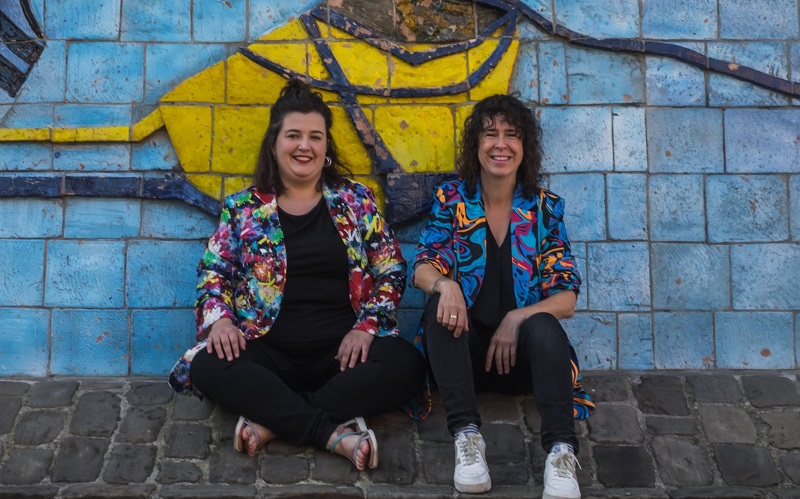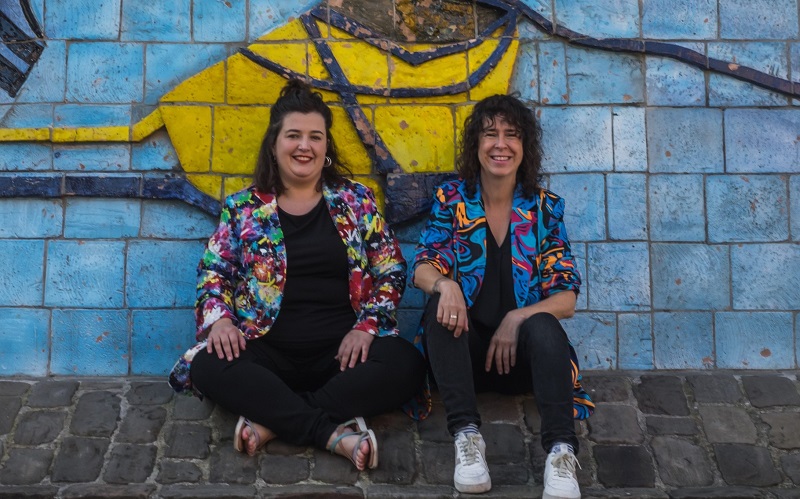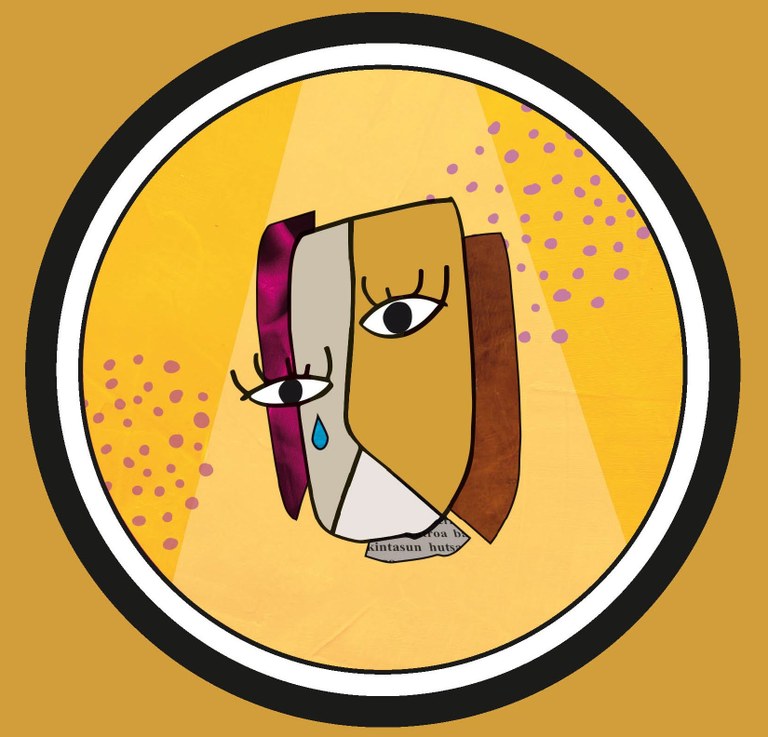Basque theatre based on monolingualism
- From 21 to 26 April, the ninth edition of the Basque Theatre of Drama (ADEL) will take place in Aulesti (Bizkaia), which this year marks its third edition. This seminar, which focuses on Basque creation and theatre, attracts every year actors and actresses from all over the Basque Country. The actor and member of the Ander Lipus platform has been in charge of uncovering the details of the film.
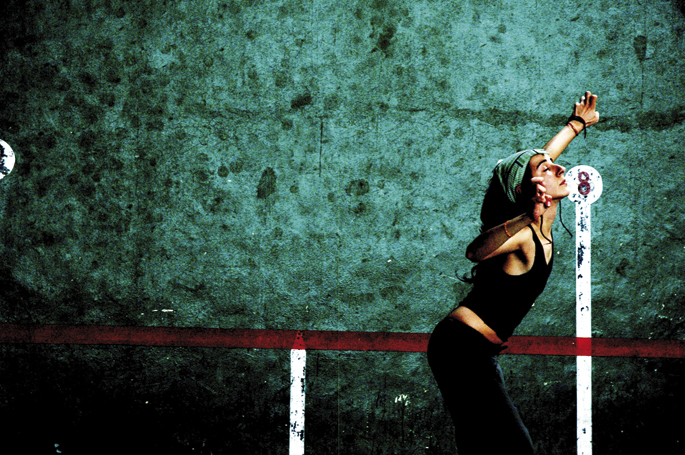
The Laboratorio Vasco ArteDrama was born from the lack because “the students could not receive training as an actor in Euskera”, explains Ander Lipus, an actor and a member of the platform. In fact, there is training, but above all in Spanish, “and the Basque actor needs to communicate in Basque, learn, create and explain in Basque”.
To make up for their lack, ArteDrama’s friends met the people of Aulesti and offered to take over the theater laboratory.
It is not usual for a small town like Aulesti to show so much expectation and interest in the theater. Asked about the contribution of the laboratory to the people, Lipus answers: “The laboratory could be closed, that is, without any incidence in the village. But we made a different proposal to them, when we were in the village, that the theater professionals were going to offer something to the people. Thus, it was decided to perform several theater plays at the Casa de Cultura of the locality and, little by little, it is a theater festival that attracts many fans of the people and the outside”.
ArteDrama has, therefore, two pillars: on the one hand, the laboratory itself, the experimentation or the theatrical formation that offers tools in Euskera, composed of approximately 15 students and five or six professors; and on the other, the theater festival that is held in the town. Year after year it is held in the village fronton, and among other things, the plays of the professors invited by the laboratory are shown.
This year, for example, Ximun Fuchs, a member of the theatre group Le Petit theatre du pain, who has led the latest work of ArteDrama, Hamlet, will offer a very special course. The work will also be represented in Aulesti. On the other hand, actress and professor Leire Ucha will play the latest play by the theater company Oh My God, entitled What do you have Amy?.
In these times of crisis, Adel has been called into question. So far, the cost of the meeting has been borne by the City of Aulesti, but the festival has increased and the city council has not been able to assume the total cost. On the other hand, two years ago the Provincial Council of Bizkaia and the Basque Government began to subsidise the Provincial Council of Bizkaia. “Now the respiratory spaces of the Basque Country are often mentioned, and here we are too,” Lipus stressed, “we are inspired by the idea of boosting the Basque theater, we are theater entrepreneurs who work in the resistance, and we work from the Basque to the Basque”.
Theater as a profession
The actors from all over the Basque Country approach Aulesti in Easter week, “This year also some student of Zuberoa”, as Lipus tells us, which gives a national perspective to the meetings. That's what distinguishes them.
There will also be space for amateur theatre, as Durango’s Karrika theatre company will offer the Lurra Astinduz theatre play. “In our profession it is very difficult to distinguish between professional, fake professional or amateur,” says ArteDrama member. “Often, the only difference between these modalities is the tax number.”
This year’s teachers will be Marga Altolagirre, Julia Marin, Ximun Fuchs, Leire Ucha and Ander Lipus. Under the title Etxekoak, the latter will run a six-hour laboratory in which students will immerse themselves in an object that has brought them from home. “I am immersed in this concept. In the next work I will address the issue of immigration, what it means to be from home or abroad. I will propose that game to the students.”
No higher education for actors
The creators of the Performing Arts have an old demand for a high-level school. The Scene driven by the Patxi Lopez Government is in nowhere today. “I’m not against the Stage,” says Lipus, “but my question is: What are those Basque students going to learn? You will have to learn the whole theory in Spanish! Today, a theater student cannot read Stanislavski in Basque. And it is up to us that point of resistance, to which we want us to talk in Basque about international theorists. My doubts come from there, what is that going to have in Basque? I prefer to put forces in the meetings of Aulesti and build something out there, but from the Basque”.
Before doing ADEL, about ten years ago, he came to Lipus Aulesti to represent the monologue Ardoaz. “The performance was in a bar and the bar was full to the top. Then I realized that in Aulesti there was a lot of fondness for
the theater.” Lipus is clear about the fight. In other words, the goal is a Basque theatre based on monolingualism. “Ruper Ordorika has made a record in Euskera and is not required to do a job in Spanish,” said Lipus, “the public must realize that it does so in the language you have chosen.”
In Euskal Herria, there is a difference from one people to another, in terms of the public. In some places it is difficult to bring the Basque public closer to the theatre. According to Lipus, “in Leioa there are about 30,000 inhabitants, 120 of whom will approach the theater. In Aulesti you will find 120 people on the first day, in the main performances there will be 400 people and a total of 600.” In other words, if a proper policy is pursued, the work bears fruit. Lipus believes that the creation of the Basque Country, rather than disappointing, is liberating: “Because there are so many things to do in Basque. You have more freedom to make mistakes. Our trade is disappointing, but I do not think it is more disappointing to choose Euskera.”
Zein iritzi duzu ArteDrama Euskal Laborategiaz?
Dagoeneko ohitura bihurtu da herrian. Gure aurreko legegintzaldietatik datorren zerbait da eta gu udalean sartu ostean ere, aurrera jarraitu beharreko ekintza dela ikusi genuen.
Aste horretako kontuak natural bihurtu dira herrian, betidanik egon izan balira legez. Kalean ohikoa baino mugimendu handiagoa sumatzen da goizetan, eta iluntzean, kanpotik jende asko etortzen da ikuskizunetara. Horrek giro aparta sortzen du.
Zein ekarpen egiten dio ADELek Aulestiri?
Aurretik aipatu bezala, alde batetik giro bikaina sortzen du herrian. Horrez gain, astebetez Euskal Antzerkigintzaren zentro bihurtzen da Aulesti, eta urte osoan ere, Euskal antzerkigintzan pisu handia dute Aulestiko topaketek. Esaldi batean esanda, erreferentzialtasuna ematen diote gure herri txikiari.
Antzerkizaleak dira aulestiarrak?
Urtetik urtera, hazi egin da herrian dagoen zaletasuna, topaketa hauei esker batez bere. Egunero hainbat herritar batzen da antzerkiak ikusten, baita inguruko herrietako jendea ere (Markina, Lekeitio...), aretoa txiki geratu zitzaigun iaz.
Aulestiko herriak ADELen alde egiten du erabat. Zergatik?
Bederatzi urte daramatzagu eta urteen ondorioz, antzerkirako ezagutza eta zaletasuna handituz joan dira. Herria parte aktibo bihurtzen da aste horretan. Baina inplikazioa obrak ikustetik harago doa, ekitaldietan ere parte hartzen dute. Herritarrek badakite topaketak kostu ekonomikoa duela, eta, azken batean, denek egiten dute ahalegina.
Gainera, euskal kulturaren eta euskal antzerkigintzaren alde ari direla jakinda, gehienak pozik daude udalak egiten duen esfortzu ekonomikoagaz. Sustatzen duguna garrantzitsua delako.
Apirilaren 21ean, Pazko asteko astelehena, hasiko da topaketa, bai laborategiak, baita antzerki emanaldiak ere. Egun horretan, Itziar Rekalde ipuin kontalaria izango da 21:00etan udal aretoan.
Apirilaren 22an Zer duzu Amy? antzezlana taularatuko du Leire Ucharen antzerki taldeak, 21:00etan. Leire Uchak berak komediaren inguruko laborategia zuzenduko du.
Apirilaren 23an Konpota, Eneritz Artetxe eta Dxuturi Teatroaren eskutik. 21:00etan izango da, udal aretoan. Zubi egistasmoaren laguntza jaso zuen obra honek. Testua, Phillipe Gaulier antzerkigileak sortua da eta Antton Lukuk itzuli zuen.
Apirilaren 24an, osteguna, antzerkitik harago doan lana eskainiko dute, Metrokoadroka kolektiboaren Poza: Zergatik dantzatzen duten bosniarrek?. Arte plastikoak, musika, literatura eta antzerkia uztartzen ditu lan honek.
Apirilaren 25ean Karrika antzerki talde amateurrak Lurra Astinduz obra eskainiko du frontoian, 22:00etan. 20 bat lagun dira guztira, eta horietako batzuk profesional gisa ere ari dira.
Apirilaren 26an, larunbata, ArteDramaren azken lana, Hamlet, ikusteko aukera izango da 22:00etan, frontoian.
Vagina Shadow(iko)
Group: The Mud Flowers.
The actors: Araitz Katarain, Janire Arrizabalaga and Izaro Bilbao.
Directed by: by Iraitz Lizarraga.
When: February 2nd.
In which: In the Usurbil Fire Room.
Duela hemeretzi urte berpiztu zen libertimenduen usadioa Donibane Garazin. Antton Lukuk abiatu zuen mugimendu hori, eta bi hamarkadetan, Ipar Euskal Herriko herri desberdinetara ez ezik, Hegoaldera ere hedatu da.
Arizona
Actors: Justin Garfield and Jon Plazaola...
WHEN: January 26th.
IN WHICH: The New Culture Center. In the square.
-------------------------------------------
The couple Margaret (Aitziber Garmendia) and George (Jon Plazaola) leave Idaho to guard the border between... [+]
AMAK
Company: Txalo teatroa.
Created by:Elena Díaz.
Address: Begoña Bilbao.
Actors: Finally, Ibon Gaztañazpi will account for the details of Intza Alkain, Tania Fornieles, Oihana Maritorena and IRAITZ Lizarraga.
When: 10 January.
Where: Auditorio Itsas Etxea... [+]
Basabürüako ibar eskuineko gazteek lehen maskarada arrakastatsua eman dute igandean, Lakarrin.
By:
Mirari Martiarena and Idoia Torrealdai.
When: 6 December.
Where: In the San Agustín cultural center of Durango.
------------------------------------------------------
The fourth wall breaks and interferes directly, standing and fearless. ZtandaP is a way of counting... [+]
By:
Mirari Martiarena and Idoia Torrealdai.
When: 6 December.
Where: In the San Agustín cultural center of Durango.
-------------------------------------------------
The fourth wall breaks and interferes directly, standing and fearless. ZtandaP is a way of counting from... [+]
We're in chaos. That has been said to us by the French media, which Parliament has brought down the government on 4 December. The fear that political, institutional, social, economic chaos will rage us all in the horde of hell comes to our veins. What comedy we're going to play... [+]









